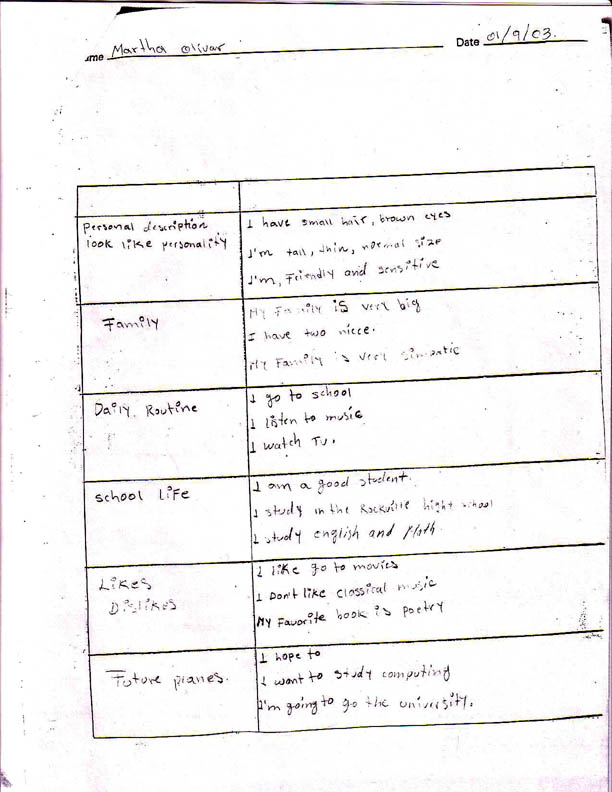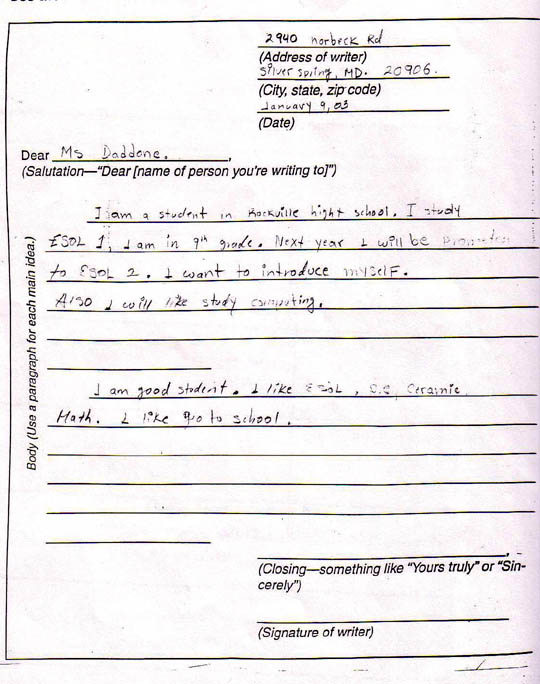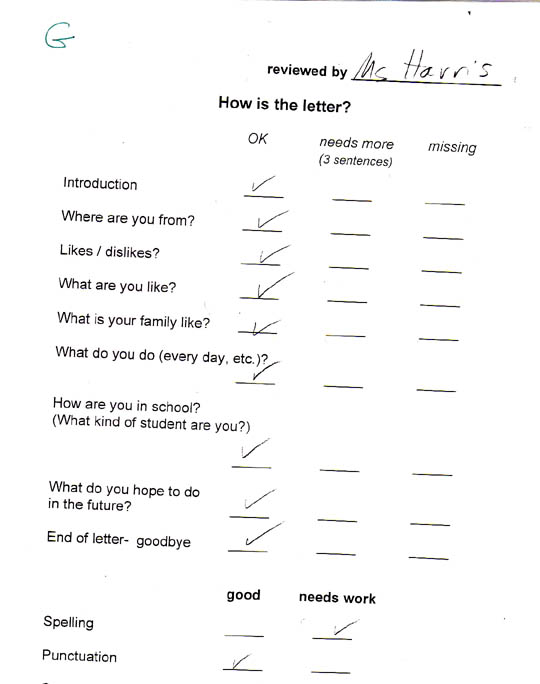|
Teachers know the subjects they teach and how to teach those subjects to students.
My beginner English high school students were working on writing informal, friendly letters. The letter was intended to tell their next ESOL teacher about themselves, and was a culminating assessment of a unit on "Identity."
I broke down the lesson into parts.
First the students used a graphic organizer (Venn Diagram) to organize their thoughts about themselves. They determined which factors were shared with a family member and which were unique to themselves.

|
| Family, likes, dislikes organizer |

|
| Friendly letter template |
The students used another graphic organizer to go into more depth about their likes and dislikes. They practiced writing these details into sentences and then moved the sentences into a letter template.

After checking their letters using this rubric, the students peer-checked each other's work using the same rubric. Then they typed the letter into the computer, checked it for typos, printed it, signed it and handed it in.
I graded the papers using the same rubric they had used to revise their papers. There were no surprises when their grades came back. They knew if they had done a good job.

|
| A classroom bulletin board |
I often display student work. My third grade intermediate students read a book and were given multi-colored strips containing parts of the story's plot to put in order. The activity reinforced the concepts about the different parts of a story: the beginning, middle and end.

Here is another exhibit by a different third grade class who were studying Explorations and Discoveries. They conducted research on an explorer of their choice, wrote a summary paragraph, and created the exhibit. We listed the steps involved in writing the paragraph while also addressing the essential questions. The students received a lot of positive feedback about the exhibit.

|
| Close-up of the essential questions addressed |

|
| The steps for writing a paragraph |
|


